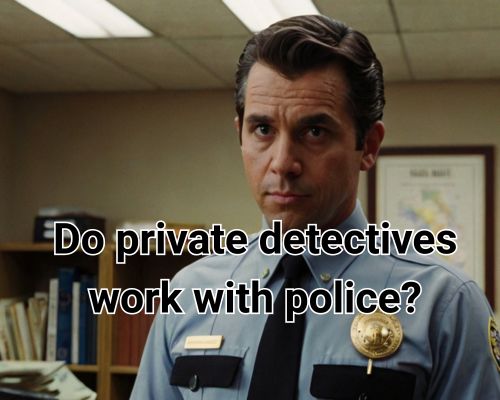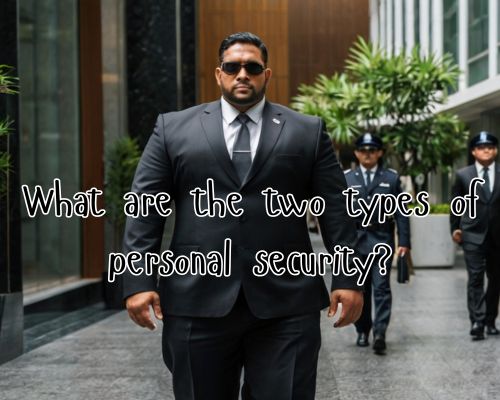
Do Private Detectives Work With Police? Exploring the Truth in West Palm Beach, Florida
In a sun-drenched city like West Palm Beach, Florida, the intrigue of private investigations is more than just television drama. As crime rates, civil disputes, and digital frauds evolve, the public increasingly turns to private detectives for support. But this leads to a pressing question: Do private detectives work with police? The answer isn’t just “yes” or “no”—it’s nuanced and varies depending on the circumstances, legal boundaries, and collaborative efforts.

With Ali Private Investigator Tampa, we delve into how private investigators (PIs) operate alongside—or independently of—law enforcement agencies, specifically in the context of West Palm Beach, and how this relationship affects individuals, businesses, and the justice system as a whole.
The Role of Private Detectives in Florida
In Florida, including cities like West Palm Beach, private detectives are licensed professionals who offer investigative services to private clients. These clients range from individuals seeking information on a cheating spouse to businesses conducting background checks or investigating corporate fraud. In the Sunshine State, private investigators must be licensed through the Florida Department of Agriculture and Consumer Services, holding a Class “C” Private Investigator License.
Salient entities tied to this field include:
- Florida Department of Law Enforcement (FDLE)
- Palm Beach County Sheriff’s Office
- Florida Statutes Chapter 493 (governing PI conduct)
- Florida Association of Licensed Investigators (FALI)
West Palm Beach has a growing demand for skilled investigators due to its booming real estate market, seasonal tourism influx, and a noticeable uptick in cybercrime and identity theft cases.
Do Private Investigators Work With Police?
The Answer: Sometimes, Indirectly or Collaboratively
Private detectives do not have the same authority or jurisdiction as police officers. They can’t execute arrests, obtain search warrants, or access certain restricted databases like the National Crime Information Center (NCIC). However, this doesn’t mean they exist in a vacuum. Here’s how they may work with law enforcement:
1. Information Sharing
If a private investigator uncovers credible evidence during a case—say, proof of fraud or a missing person—they can voluntarily share their findings with the West Palm Beach Police Department or Palm Beach County Sheriff’s Office. While the police aren’t obligated to act on it, this information can jump-start or support an ongoing criminal investigation.
2. Witness Interviews and Surveillance
Police departments, often short-staffed and under resource constraints, may appreciate the legwork done by licensed PIs—especially when it involves surveillance footage, timelines, or credible witness statements. A PI may not officially “work with” the police but may still provide investigative leads that get folded into a larger case.
3. Cold Case and Civil Assistance
In rare instances, especially with cold cases or civil disputes that border on criminal matters, private detectives may collaborate informally with law enforcement officials. This is particularly true if a PI’s work fills in investigative gaps the police cannot address due to jurisdictional limitations or caseload prioritization.
For an experienced private investigator, just visit Ali Private Investigator Tampa.
Examples in West Palm Beach: Private-Public Dynamics
Let’s say a West Palm Beach resident hires a private investigator to track down a relative who has gone missing under mysterious circumstances. The police may have closed the case due to a lack of leads. However, if the private detective uncovers new evidence—say, the individual is being held in an illegal situation—that information could reignite police interest.
In other local scenarios, corporate entities in downtown West Palm Beach may hire PIs to conduct background checks or asset tracing on potential business partners. If fraud is discovered, the police or the Florida Office of Financial Regulation may become involved.
In some family law cases, such as contested divorces or child custody disputes, private detectives might gather surveillance evidence that is later submitted to Palm Beach County Family Court. If criminal activity is uncovered, law enforcement may intervene.
Legal Limitations and Ethical Considerations
Private detectives must abide by the law, just like anyone else. They cannot impersonate police, trespass, or use unauthorized surveillance tools like wiretaps. In West Palm Beach, violating these statutes could result in the loss of licensure or even criminal charges.
Moreover, Florida’s public records laws allow access to many documents that can aid both police and private investigations. However, a PI must still work within the ethical bounds of confidentiality, especially if they’re handling sensitive information like medical records or financial statements.
When Do Police Not Work With Private Detectives?
Despite overlapping interests, there are distinct boundaries. Police departments are public agencies tasked with criminal law enforcement, while private detectives operate within civil and private frameworks. Law enforcement officers are not permitted to act on evidence gathered unlawfully, even by a PI. This means that a sloppy or overzealous private investigator could compromise a police investigation.
In West Palm Beach, law enforcement also prioritizes threats to public safety over private concerns—meaning that unless a PI’s findings present imminent risk or actionable intelligence, police collaboration is unlikely.
Benefits of Dual Engagement: Private + Police
For Individuals:
- Increases the chances of recovering stolen property or finding missing persons.
- Offers emotional support through continued investigation when police efforts slow.
For Businesses:
- Combines the discretion of a PI with the enforcement power of local police.
- Enhances legal readiness when building civil or criminal cases.
For the Justice System:
- Expands investigatory reach through private-sector diligence.
- Helps surface leads in cases that would otherwise go cold.
Local Insight: West Palm Beach’s Investigative Landscape
West Palm Beach is no stranger to complex cases. The city’s proximity to Miami, its influx of affluent seasonal residents, and its growing tech sector make it a unique environment for both public and private investigations.
Firms like Palm Beach Confidential Investigations and Florida Investigative Services have carved niches in this competitive space, offering everything from GPS tracking and infidelity investigations to corporate espionage and insurance fraud analysis.
Meanwhile, the West Palm Beach Police Department continues to handle traditional crime enforcement, cybercrime, and narcotics investigations, occasionally fielding tips from PIs.
Final Verdict: A Parallel Partnership
So, do private detectives work with police? In West Palm Beach, the relationship is best described as parallel yet occasionally intersecting. While private detectives aren’t official law enforcement partners, their work can support, inform, or even rekindle dormant investigations. When done ethically and legally, their contributions can be vital to the broader ecosystem of justice.
As urban life grows more complex and the digital and physical worlds intertwine, the synergy between private and public investigators in places like West Palm Beach will likely continue to grow.






